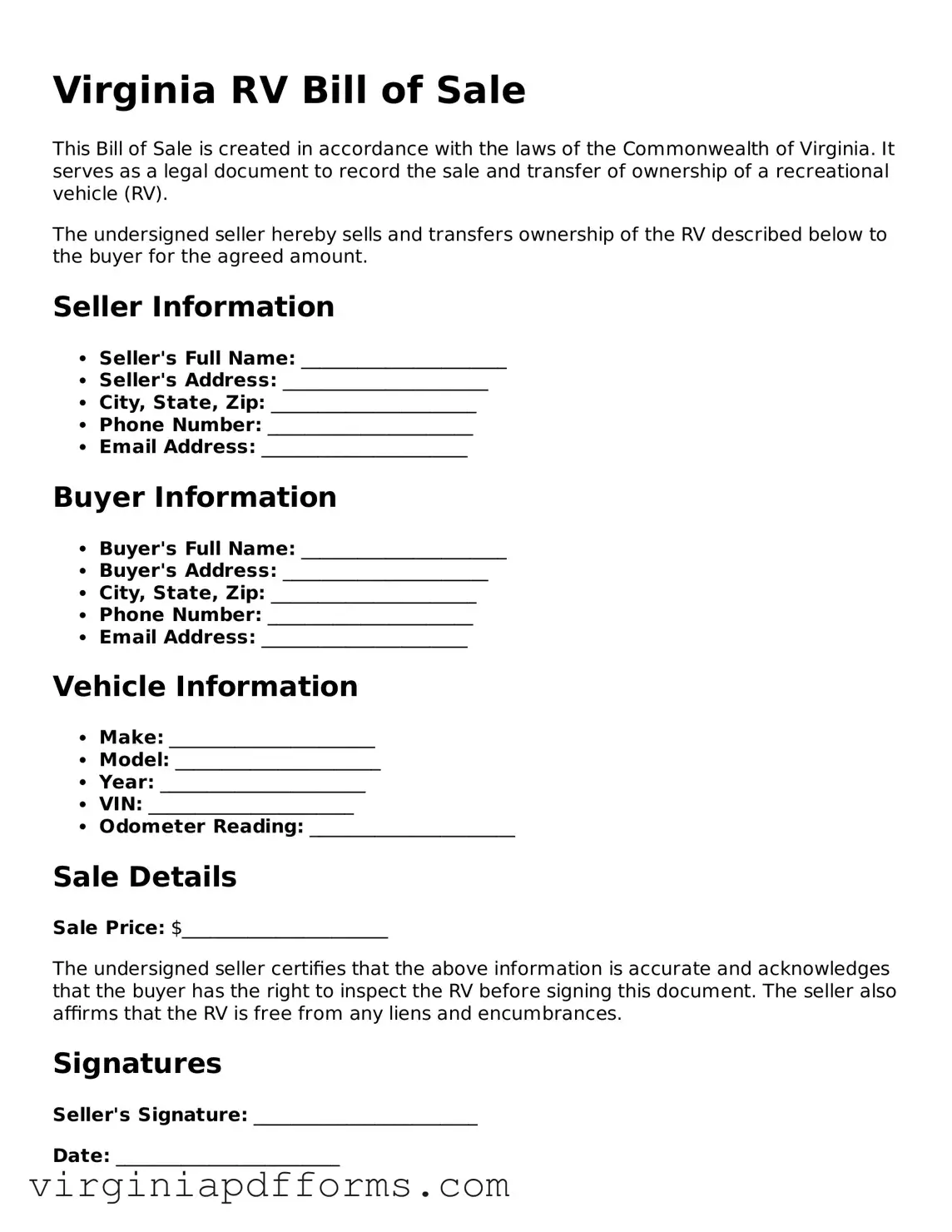Attorney-Approved Virginia RV Bill of Sale Document
The Virginia RV Bill of Sale is a legal document that serves as proof of the sale and purchase of a recreational vehicle in Virginia. This form outlines important details such as the buyer and seller's information, the vehicle's description, and the sale price. Understanding this document is essential for both parties to ensure a smooth transaction and proper transfer of ownership.
Access My Document Now

Attorney-Approved Virginia RV Bill of Sale Document
Access My Document Now

Access My Document Now
or
Free RV Bill of Sale File
Need this form wrapped up fast?
Finish RV Bill of Sale online — edit, save, download without effort.